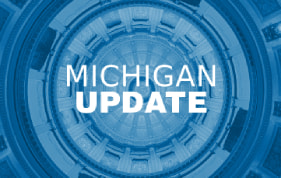This week, our In Focus section focuses on five critical policy and program trends to provide integrated care to dual-eligible individuals for Medicare and Medicaid. Both federal and state governments continue to look for ways to improve coordination and integration for this population. We anticipate the emphasis on innovative approaches to whole person, person-centered care, care management and coordination, care transitions, and regulatory oversight to persist. 2020 has been an active year of policymaking by the Centers for Medicare & Medicaid Services (CMS) and states. HMA distilled the themes and their strategic implications in this article. We continue to assist clients in tracking new policies and industry trends, developing innovative plans and strategies, and delivering high quality care and services to this population.
1803 Results found.

CMS Finalizes Meaningful Expansions of Medicare Telehealth Service Coverage Through 2021
This week, our In Focus section reviews the finalized coverage expansions for Medicare telehealth services in the Centers for Medicare & Medicaid Services (CMS) Calendar Year (CY) 2021 Physician Fee Schedule (PFS) Final Rule. Telehealth advocates will be pleased to see meaningful expansions; however, the response of advocates will also be tempered by the impending return of the geographic and site of service limitations that will follow at the conclusion of the COVID-19 Public Health Emergency (PHE). During the PHE, millions of patients and providers increased their use of telehealth services to expand access to care. Given this shift in the delivery of care, telehealth advocates had been hopeful CMS would make extensive permanent coverage expansions in the Medicare program. In light of this, CMS’s new regulation will come as a reminder to many that the key to long term expansions of Medicare telehealth coverage lies in the hands of the U.S. Congress.

The Future of the Affordable Care Act (ACA): Implications of November’s Elections and a Supreme Court Decision
After the November 3 elections, the political landscape will shift as the composition of the next administration, Congress and many state legislatures and governors’ offices begins to take shape. If President Trump is reelected, his administration will position to govern for another four years. If former Vice President Joe Biden is elected, his campaign will accelerate transition planning and prepare actions to implement change immediately upon inauguration. At the same time, on November 10, the Supreme Court is scheduled to hear oral arguments regarding the continued validity of the Affordable Care Act.
The presidential, congressional and state elections, and the Supreme Court’s decision, will drive the future of the ACA and health care coverage in the U.S. While any significant change will take time to implement, uncertainty will require action and planning from all health care stakeholders as they navigate the emerging scenarios and position for future shifts.
During this webinar, HMA and Dentons will discuss the specific pathways that change could take. Specifically:
- What impact could the Supreme Court’s decision have on the ACA, and what is the expected timing of this decision?
- What impact could the November election results have on the Supreme Court’s decision?
- What immediate actions should stakeholders expect for Marketplace and Medicaid coverage as a result of the November elections?
- If Democrats gain control of the White House and Congress, how will Democrats implement campaign pledges, for example to create a public option and expand Medicare to those ages 60 to 65?
- How will the future direction of the ACA impact other health care coverage?
- How would Medicare be affected by the ACA decision and the results of the November elections?
- How should specific health care stakeholder groups (e.g., consumers and patients, health plans, delivery systems, states) respond and prepare for changes?
Speakers
Jonathan (Jon) Blum, MPP, Vice President, Federal Policy and Managing Director, Medicare, HMA
Bruce Merlin Fried, Partner, Dentons’ Health Care Practice
Charles Luband, Partner, Dentons’ Health Care Practice
Kathleen Nolan, Regional Vice President, HMA

North Carolina Releases RFA for Behavioral Health, Intellectual/ Developmental Disability Tailored Plans
This week, our In Focus section reviews the statewide North Carolina request for applications (RFA) for Behavioral Health and Intellectual/Developmental Disability (BH IDD) Tailored Plans released by the North Carolina Department of Health and Human Services (DHHS) on November 13, 2020. BH IDD Tailored Plans are part of the statewide effort to transition to Medicaid managed care and are one of the four types of integrated Medicaid managed care plans the state will contract with to serve Medicaid and NC Health Choice beneficiaries. The other three are Standard Plans, the Statewide Specialized Foster Care Plan, and the Eastern Band of Cherokee Indians Tribal Option.


